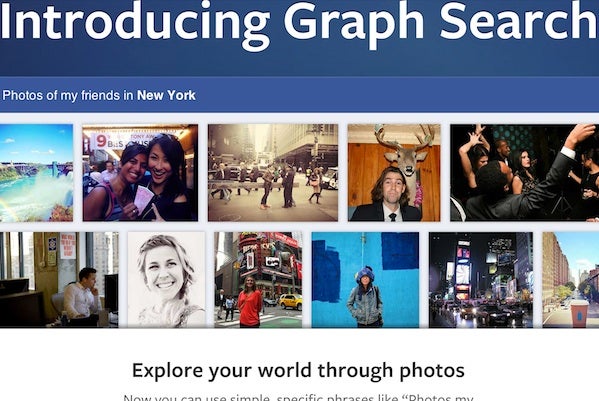Facebook Graph Search announced

Facebook has launched a new search engine called Facebook Graph Search, which has entered the Beta testing phase.
Facebook Graph Search (as predicted yesterday) will use Facebook’s massive index of data from its 1 billion users to provide personalised search results – data that is completely unavailable to Google. Despite Mark Zuckerberg’s assertion that “Graph Search is not web search,” it’s clear that Google should be very worried.
Graph Search is designed to give you the answer rather than leading you to a series of links to potential answers. When there’s no answer to be gained from your own connections and uploaded material, Bing integration will return more traditional web search results.
Your typical search on Graph Search, however, will adopt a far more naturalistic approach than what you might be used to. Imagine you’re about to visit a city on your holidays – let’s say Amsterdam – and you wanted to see images of the place from contacts who have visited, you could type in “photos of my friends in Amsterdam” and Graph Search would understand precisely what you’re requesting.
The responses will be listed in the order of those contacts who are closest to you – your immediate circle of friends and family at the top.
“Photos of me and (name of friend)” is another useful example of how Graph Search will enhance your everyday Facebook experience, pulling together all of the pictures tagged with your two names with a simple five word search.
Facebook Graph Search is currently in a very limited Beta phase, with only a handful of people testing it. You can join the waiting list to try it out over on the Graph Search website.
What do you think of Facebook’s new search engine? Should Google be worried? Let us know what you think on our Facebook and Twitter feeds, or use the comments box below.
Via: Facebook


